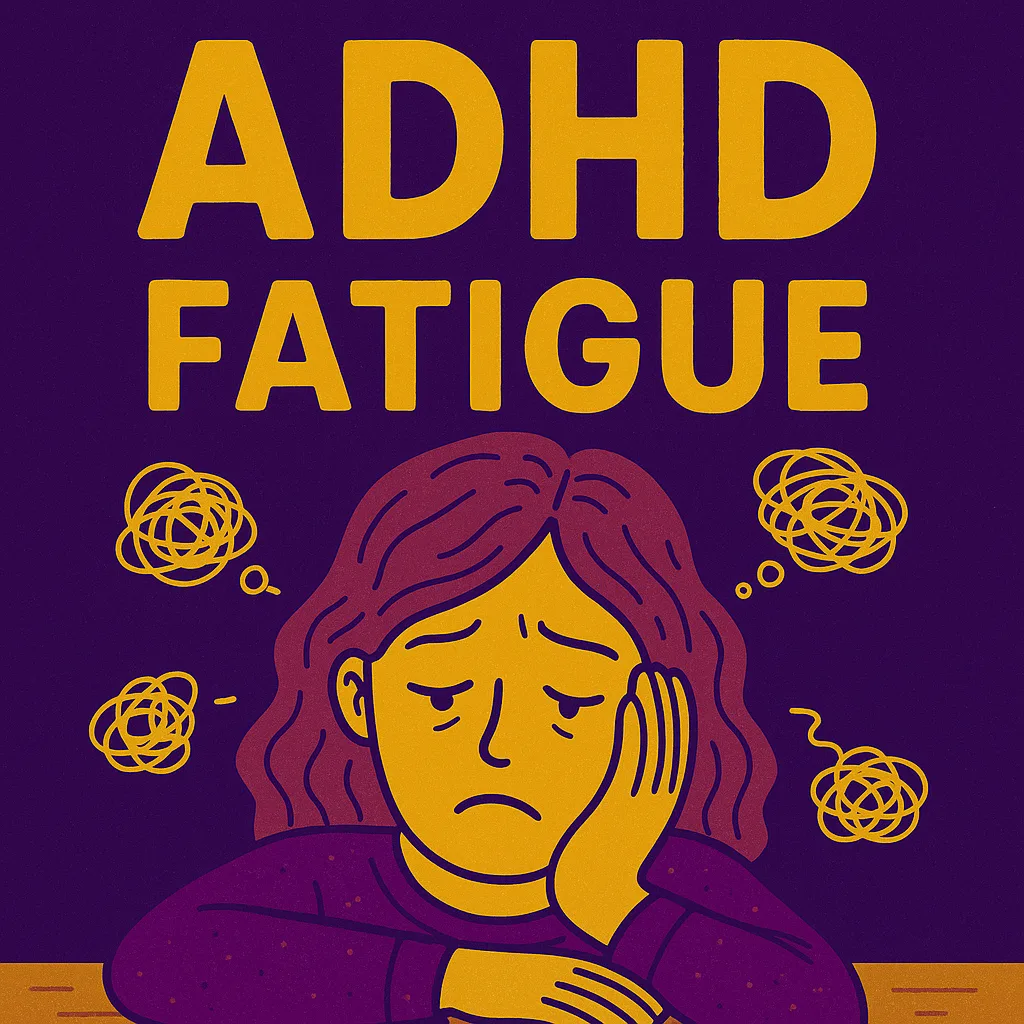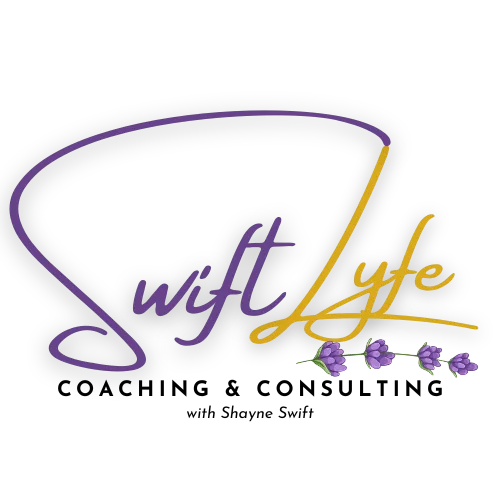By Shayne Swift | SwiftLyfe Coaching & Consulting
Feeling Exhausted with ADHD? You’re Not Alone.
Picture this: you wake up already tired. Your brain feels like a browser with 37 tabs open—and at least 20 are frozen. You sip your coffee, glance at your to-do list, and think, Why does everything feel so hard?
If you’re living with ADHD and chronic fatigue, this isn’t just in your head. Fatigue is one of the most common and overlooked symptoms of ADHD, especially for women and late-diagnosed adults. And no—it’s not because you’re doing something wrong. It’s because your brain is wired to run a marathon in a world built for sprinters.
Let’s break down the real reasons behind ADHD-related fatigue and what you can actually do to manage it.
🔋 What Causes Fatigue in People with ADHD?
ADHD isn’t just about forgetfulness or distraction—it’s a full-body, full-brain condition. Here’s how it drains your energy on a daily basis:
1. Executive Function Burnout
Managing priorities, switching tasks, and staying organized is like juggling flaming swords while walking a tightrope. ADHD brains work overtime to handle executive functioning, which burns mental energy fast.
2. Emotional Intensity & RSD
Rejection Sensitive Dysphoria (RSD) and emotional dysregulation take a toll. A single piece of criticism or a small setback can leave you mentally and physically exhausted.
3. Sleep Disruption
ADHD and sleep problems go hand in hand. From racing thoughts to inconsistent sleep cycles, poor rest leads to chronic fatigue—no matter how long you’re in bed.
4. Sensory Overload
Bright lights, background noise, itchy clothing, even a messy room—sensory processing issues are common in ADHDers. That overstimulation saps your focus and your energy.
5. Masking Your Symptoms
Pretending to be “neurotypical” all day long—faking focus, managing small talk, hiding fidgeting—is exhausting. The cost of masking is real, and it adds up fast.
🚨 ADHD Fatigue Symptoms You Might Be Missing
- You wake up feeling like you never slept.
- Decision-making feels impossible.
- You procrastinate because you have zero energy, not because you’re lazy.
- You bail on plans or isolate—even from people you care about.
- Your tolerance for noise, demands, and surprises disappears in minutes.
Sound familiar?
🧠 How to Manage ADHD Fatigue: Real-Life Strategies
Here’s how to protect your energy, not just push through the exhaustion:
1. Work With Your Energy Waves
Track your natural focus and rest cycles. Schedule demanding tasks during your peak hours—even if that’s 11 p.m.—and allow rest when your brain needs it. Energy management > time management.
2. Redefine Rest as a Necessity, Not a Reward
You don’t earn rest—you require it. Build in recovery breaks before burnout hits: microbreaks, movement, mindful pauses.
3. Create ADHD-Friendly Sleep Routines
Forget rigid sleep schedules. Try winding down with dim lights, calming audio, and predictable cues that soothe your brain into rest.
4. Reduce Decision Fatigue
Use “defaults”: repeat outfits, meal prep, saved responses. Fewer decisions = more mental fuel for what matters.
5. Lean on ADHD-Specific Support
Body doubling, coaching, and community can reduce overwhelm. Shared energy creates momentum you might struggle to generate alone.
🔑 Key Takeaways
- ADHD fatigue is valid and multifaceted.
- It stems from executive overload, emotional swings, sensory processing, masking, and sleep disruption.
- Managing energy—not just productivity—is essential.
- Strategies that align with your brain can help you feel less depleted and more in flow.
💬 Final Thoughts: You’re Not Lazy—You’re Tired, For Good Reason
ADHD fatigue isn’t failure. It’s a byproduct of a powerful, fast-burning brain in a high-demand world. When you stop blaming yourself and start honoring your neurotype, you create space for real rest, real strategy, and real transformation.
Let’s stop running on fumes—and start thriving on purpose.
About the Author
Shayne Swift is the founder of SwiftLyfe Coaching & Consulting. Diagnosed with ADHD as an adult, Shayne helps neurodivergent thinkers turn chaos into clarity using expressive arts, science-backed strategy, and deep compassion. She specializes in ADHD life coaching, executive function support, and sustainable systems for real life.


